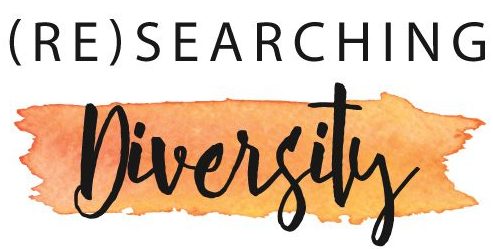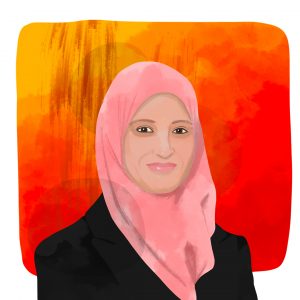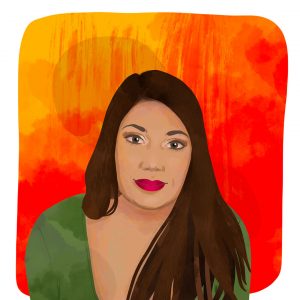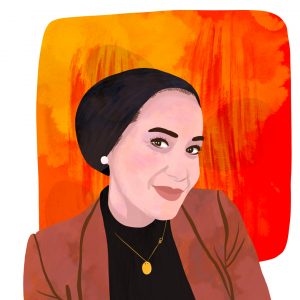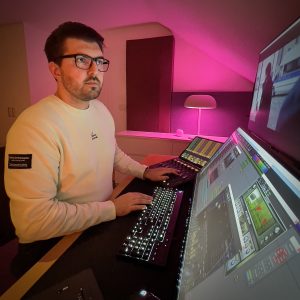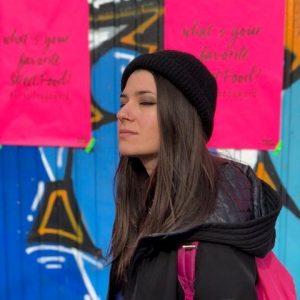Who are we?
We are a community of early career women in social sciences. And that’s why we share a professional and personal interest in expanding existing stories about who can be a researcher.
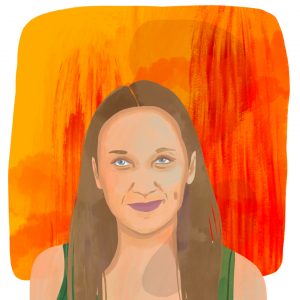
Assistant professor at the Department for Psychology, Education, and Child Studies (DPECS), Erasmus University Rotterdam, the Netherlands



Past: I was born in East Berlin and grew up in Germany, Japan, and Austria. As a so-called “third culture kid”, I have always been fascinated by the complex ways in which young people understand and combine different cultural and social aspects of themselves. After studying Sociology and Psychology (University of Vienna), I obtained my Ph.D. in Psychology (University of Potsdam, 2019). I researched parents, peers, and school as resources for youths’ cultural belonging, well-being, and school adjustment.
Present: My current research concerns how young people can belong to more than one (cultural) group and how this affects their well-being and school/study experiences. I further study how parents, friends, and school can help youth in feeling like they belong and in becoming healthy and happy individuals despite structural, societal challenges. I combine perspectives from developmental psychology, inclusive education, and cross-cultural psychology.
Future: Besides increasing representation of minoritized scholars, I wish that this podcast can be a platform, source of support, and inspiration for students and researchers. By combining our strengths and setting an example of a safe collaborative environment, I believe that this project contributes to more equitable practices in social science and education.
Past: My parents are Moroccan and I was born in the Netherlands. When I was 15 years old, we moved to France and lived there for six years. When I came back to the Netherlands in 2010, I studied Pedagogical Sciences and Orthopedagogy. As a young girl with a migration background I know what struggles most students encounter at school and that is why I decided to do a Ph.D on culturally responsive teaching (CRT). I wanted teachers to see potential in all students regardless of their family background.
Present: I have recently finished my Ph.D in Educational Sciences about cultural diversity in secondary schools. I investigated how teachers culturally responsive competences could be improved, students’ perceptions on CRT, what role the school environment has on the professional development of teachers when it comes to professionalizing in CRT and how efficacious teachers feel in CRT. During my Ph.D I trained teachers in professional learning communities on CRT and topics such as fixed and growth mindset, sensitive themes and motivation in culturally diverse classrooms.
Future: Besides increasing knowledge about diversity, I hope that this podcast can provide a supportive environment for students, researchers and educators with and without a migration background. Moreover, I wish that we can inspire more students with a migration background to become researchers as well!
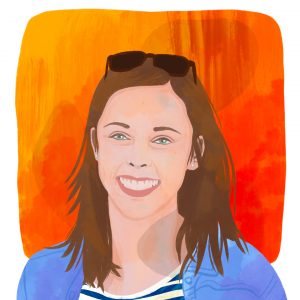
Junior Professor for School Socialization Research at the Institute for Educational Research/School of Education, University of Wuppertal, Germany


Past: I was born and raised in the Cologne area and studied psychology at the universities of Cologne and Jena. During my high school and university years, I lived and studied in the United States, Nepal, New Zealand, and the Netherlands. Through these experiences, I became interested in how experiencing cultural diversity can promote empathy and perspective-taking. I obtained my Ph.D. in psychology at the University of Potsdam in 2019, studying intercultural competence among adolescents attending culturally diverse schools in Germany.
Present: With my current research, I want to find out how youth in culturally diverse societies learn to analyze and address social inequities between different cultural/ethnic groups, drawing on concepts of critical consciousness and civic engagement.
Future: I hope that this podcast will not only increase visibility of outstanding research on ethnic, cultural, and migration-related diversity, but will also encourage reflection on how research structures and practices themselves can be more inclusive and equitable.
Past: I grew up in a working class district in Berlin and am the first one in my family who went to university. Growing up with an afro-German family history and a Slovenian surname, in an culturally diverse neighbourhood and network as long as I can think, while at the same time being othered in school or in every day experiences, my identity has captured the way towards my research interests – and my role as researcher and educator.
Present: Cultural diversity is the norm, not the exeption. This perspective is fundamental to my understanding of educational research. With my research, I aim to contribute to how the cultural identities of students can be incorporated in a sensitive, reflective way and understand how they can be a resource in the school context. For that purpose, I examine the adaption and implementation of an US-based intervention on cultural identity exploration and discussions on social inequities with youth in Germany. Furthermore I am engaging in how we can make pre- and in-service teachers more competent in a way that they feel better prepared to respond adaquatly to the needs of their culturally diverse classrooms.
Future: With our podcast, I want other students, researchers and educators (especially of color!) to see: researching diversity is important, valuable and fun. I hope that with every episode, our listeners get to know new perspectives, unknown theoretical input and enjoy the conversations we share with our impressive guests.
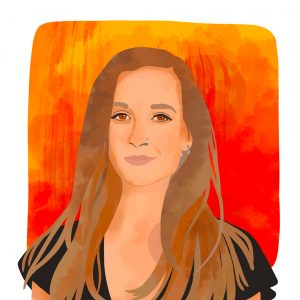
Postdoctoral researcher and lecturer at the Inclusive Education Department at the University of Potsdam, Germany


Past: I was born and raised in Istanbul, Turkey. With the consistent politicization of my identities (i.e., woman and queer) in-between continents, cultures, and ideologies where I call home, I developed a great sensitivity to inequalities all marginalized groups experience. I studied Psychology at the Bahçeşehir and Koç University, Turkey. During my studies, I lived and studied in Hungary and the United States. In 2017, I immigrated to Germany and started my Ph.D.
Present: Through my research, I aim to understand the role of schools and families in youths’ ethnic-racial identity development and youths’ everyday intercultural relations. Besides, as a junior researcher who is shaping her values and goals in science, my research increasingly integrates different forms of open science practices.
Future: With this podcast, I hope to provide representation for (e.g., woman, queer, immigrant) students who have never considered research as a career, especially in areas such as psychology and education. I hope that every episode provides senior and junior scholars a new perspective to question well-established research practices and urges them to feel responsible to (re)construct academia with a new and all-inclusive design.
Past: My grandfather came to Germany from Turkey as a guest worker in the 1970s. I was born and raised in Germany and I am a so-called German with a migration biography. I studied psychology at Bielefeld University, the University of Southampton, and the University of Bremen. As the granddaughter of a nomad family with a tradition of carpet weaving, I have always had an eye for how migration processes form, shape, and develop our societies, what experiences people have in the process.
Present: Currently I am a Ph.D. candidate focusing on migration, discrimination, and acculturation. I investigate discrimination and acculturation of migrants by taking an interdisciplinary perspective, encompassing social and developmental psychology, using quantitative and qualitative research methods. Additionally, I teach in the area of research on discrimination and migration. Also, I am a member of the project “ZuGleich – Belonging and Equivalency” funded by Stiftung Mercator, at the Institute for Interdisciplinary Research on Conflict and Violence (IKG) at Bielefeld University.
Future: With this podcast I hope for a sensitivity for more diversity in educational processes. I hope that especially nowadays, our podcast will ‘travel’ through the world on a verbal level and reach many students and researchers, and give them strength, courage and vision.
And we couldn’t do without…
Past: I was born and raised in Stuttgart in the Southwest of Germany in a musical and tech-savvy family. I studied audiovisual media at the Stuttgart Media University and sound design at the Filmakademie Baden-Württemberg.
Present: I love the world of sound. I currently work as a freelance audio engineer and sound designer for film, TV and advertising. I also work as a audio engineer at the young opera Stuttgart (JOiN).
Future: In the future, I will continue to support people with my work and sound design to tell their stories.
Past: Zey moved to Germany from Istanbul in 2017 and has been living there since. With an education background in sociology, they get their inspiration for their artwork from the social conflict between the self and the identity, and they can’t separate politics and art from each other.
Present: Zey is a 34-year-old self-taught visual artist, and one of the co-founders of the Cologne based queer-feminist art collective cumming. Nowadays they are taking part in organising new events and focusing on their personal art projects.
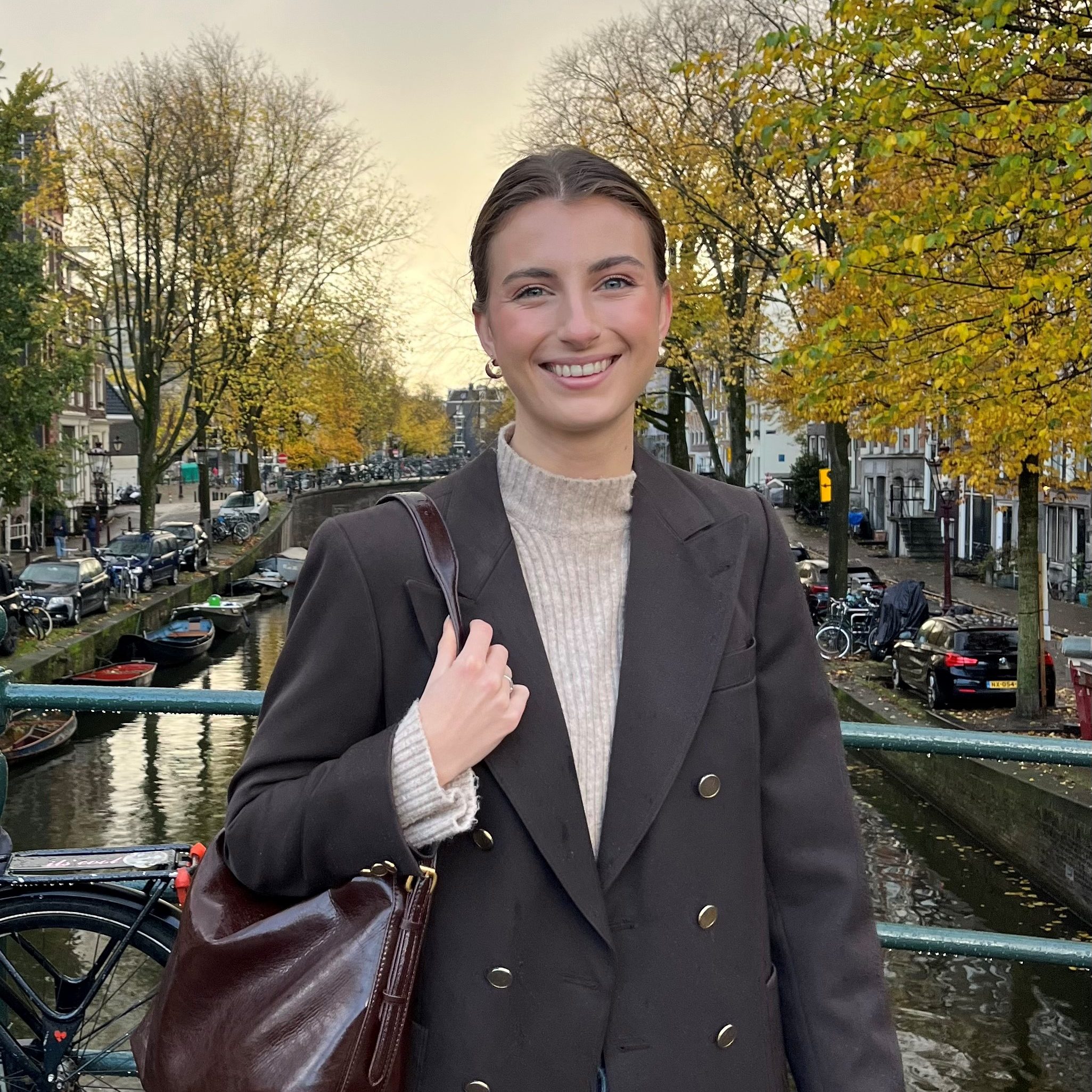
Student assistant (2024), Erasmus University Rotterdam, the Netherlands
Past: I was born and raised in a small Dutch town near Nijmegen. After completing my secondary education, I moved to Amsterdam to pursue a bachelor’s degree in Psychology at the University of Amsterdam. During my studies, I developed a strong interest in the psychology of (lifelong) learning and educational processes. This passion grew as I explored various roles, from tutoring high school students to gaining experience in organizational and developmental psychology.
Present: Currently, I am enrolled in the master’s program in Educational Psychology: Learning and Performance at Erasmus University Rotterdam. This program allows me to combine my passion for psychology and education, focusing on enhancing learning outcomes and performance through psychological insights. Alongside my studies, I continue to tutor and volunteer. I am currently exploring internship opportunities to broaden my practical knowledge and skills in the field.
Future: In the future, I aspire to deepen my expertise in educational psychology by engaging in research projects, especially those exploring cultural influences on education and learning. I am eager to experience studying and working abroad, where I can contribute to projects that assess and improve educational practices across diverse settings. Additionally, I hope to expand my knowledge in coaching and practical applications within education, ultimately aiming to make a meaningful impact in the field of educational psychology and lifelong learning. I’m very excited to be helping out with the ReSearching Diversity Podcast; I feel inspired and empowered by the incredible women involved. I hope to learn a lot from them as we work to bring forward diverse perspectives and experiences. I’m looking forward to seeing the podcast grow, connecting people and fostering greater inclusivity in academia.
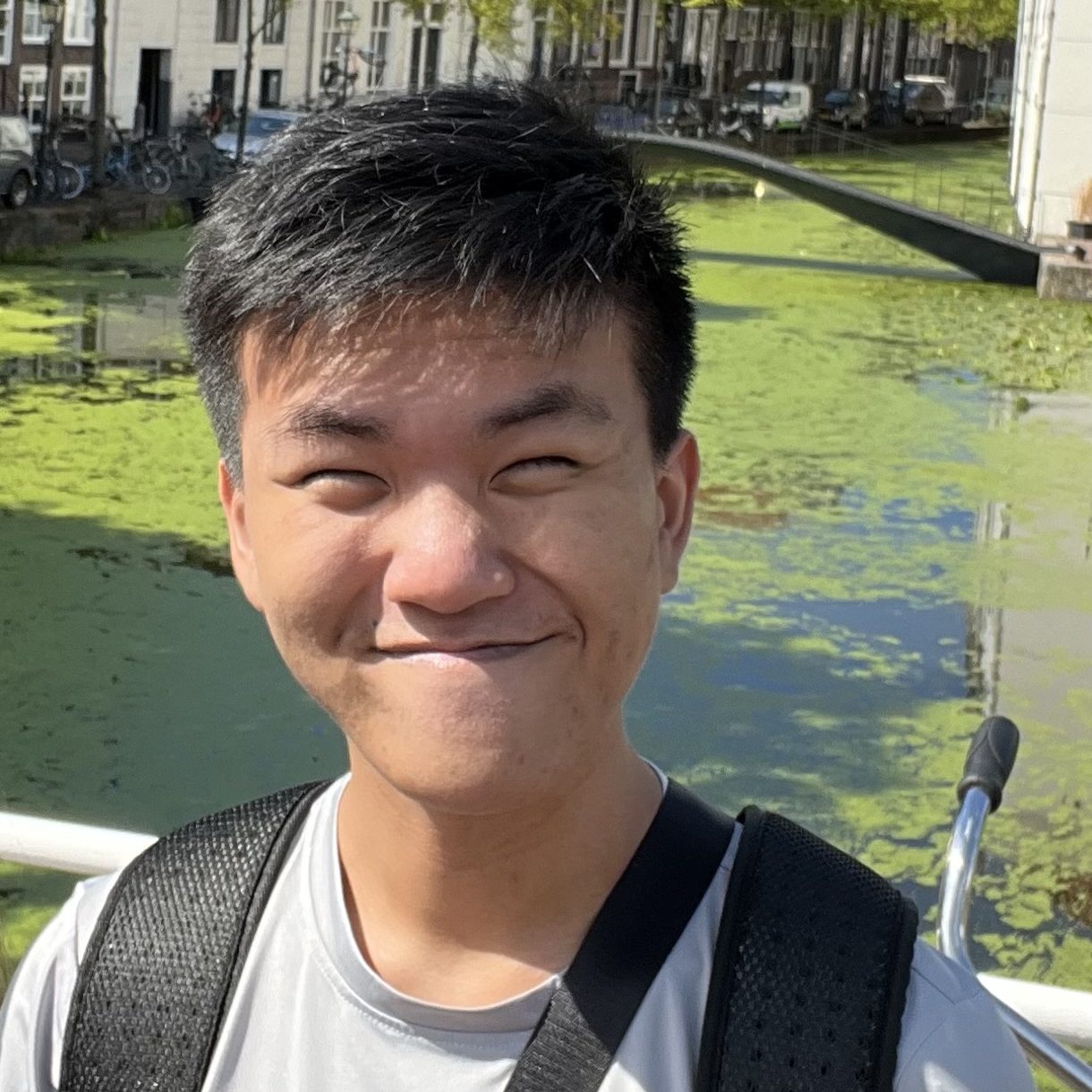
Student assistant (2023), Erasmus University Rotterdam, the Netherlands
Past: I was born in Vietnam and moved to the Netherlands as an early teen. Throughout my life, I’ve been a part of diverse academic and social communities. As a result, I have worked with marginalised groups in Vietnam, Utrecht and Rotterdam, and played an active role in many social projects outside my studies.
Present: I am pursuing my Bachelor at Erasmus University College and a board member of the Student Academic Affairs Council. I want to be challenged by a multidisciplinary education while exploring my interests in research further.
Future: I hope that the podcast, and other future works, would inspire my generation of students to take initiatives in making a difference.
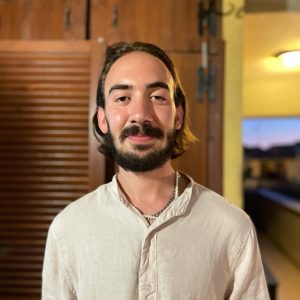
Student assistant (2023), Erasmus University Rotterdam, the Netherlands
Past: I was born and raised in Rome until the age of 19. There I pursued my secondary education, and obtained my diploma in languages. I always had an interest in expanding around my native culture to interact with a more vast array of backgrounds. That is why I caught the chance to move to the Netherlands right after my last year of high school to pursue my bachelor’s degree in Psychology, that I obtained in 2022 from the University of Tilburg. That same year my interest in psychological research had sparked, so I moved to Rotterdam to enrich my educational curriculum with a research master’s in Clinical psychology.
Present: I am currently enrolled in the research master’s in Clinical Psychology at Erasmus University Rotterdam. During my first year as a master’s student, I got the chance to research the effects of different types of environment on stress arousal and cognitive load under the department of Educational Psychology of my university. The study will be soon presented at the International Cognitive Load Conference in Montpellier, and is currently being expanded and re-edited to allow for publication. I work as a student assistant and as a publisher for a semi-academic journal.
Future: I hope the Identity Intervention Podcast will make students coming from an underrepresented culture feel empowered, and I hope that the stories that are being told will spark the necessary motivation for them to make their impact on the world of academia. Regarding my personal aspirations, my interests lie in pursuing a career in research in Psychology. Starting from next year, I am looking to gain more experience in research by volunteering for research programs across the world.
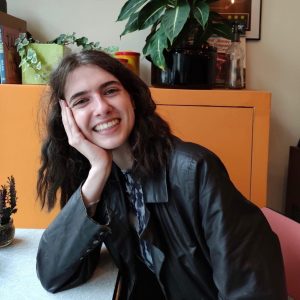
Student assistant (2022), Erasmus University Rotterdam, the Netherlands
Past: I was born and raised in The Netherlands, I studied the Bachelor in Psychology at the Erasmus University of Rotterdam. I enjoy living in Rotterdam because it is such a multicultural city. My Bachelor’s sparked my interest in research and I am personally interested in making research more accessible to everyone. As a researcher, I think it is important to interact with different cultures and learn from each other’s points of view.
Present: I am currently a Clinical Psychology master’s student at the Erasmus University of Rotterdam. Within my master’s I focus on how the mental well-being of young people got affected by Covid-19. Besides my studies, I work as a research assistant for Movez Lab and I do voluntary work as a coach on the McGuire Programme. I have a stammer myself and now help other people with a stammer. The McGuire Programme is an international programme where I got to know people from all around the world.
Future: Next year I will move to Edinburgh to study Psychological Research at the University of Edinburgh. I am excited to study in a different country and meet students from different backgrounds. My hope is that this podcast will give representation to underrepresented groups and that will make other students (from diverse backgrounds) excited to work in the research field. Lastly, I hope this podcast will give listeners a better understanding on why representation and diverse research is important.
